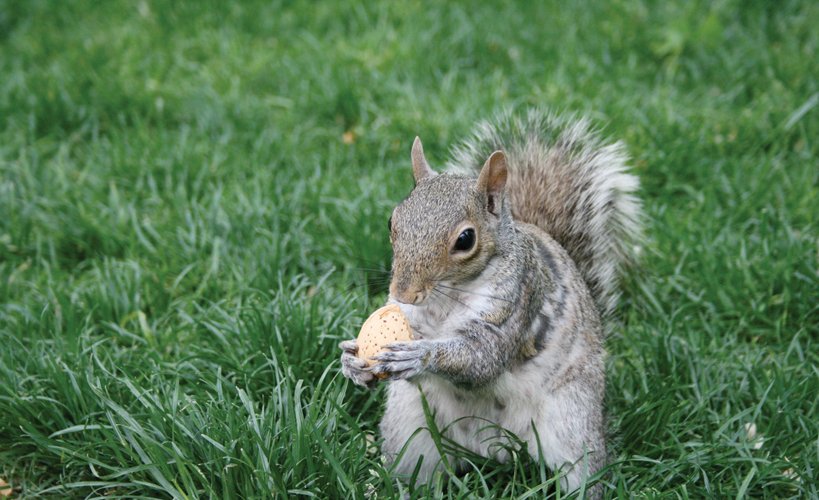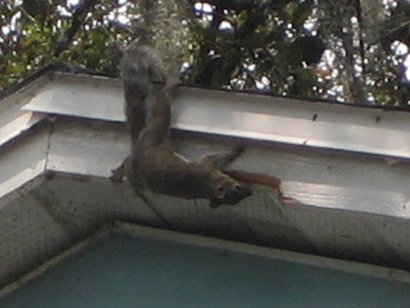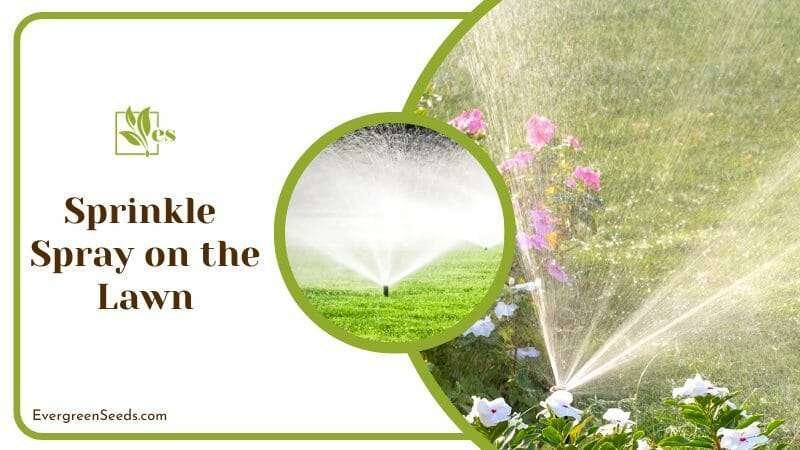Having animals around your house can be both exciting and troublesome at times. While it’s nice to have the occasional visit from a furry friend, dealing with their intrusion can be quite a challenge. From pesky critters raiding your trash cans to raccoons making a mess of your garden, it’s important to find effective ways to keep animals away from your house. In this article, we’ll explore a range of simple, yet effective methods to help you maintain your home as a peaceful animal-free zone. So, let’s get started on creating a harmonious living environment that you and your four-legged friends can appreciate.


Secure Your Home
Seal Entry Points
One of the most important steps to securing your home is sealing any potential entry points that animals may use to gain access. Check for gaps and cracks in your walls, windows, and doors, and seal them using caulk or weatherstripping. It’s also a good idea to inspect your roof for any holes or loose shingles and have them repaired promptly.
Install Fencing
Installing a sturdy fence around your property can serve as a physical barrier to keep unwanted animals out. Make sure the fence is at least six feet tall and extends below ground level to prevent animals from digging under it. Choose fencing materials that are difficult for animals to climb, such as smooth metal or vinyl.
Use Animal-Proof Trash Bins
Animals can be attracted to your property by the smell of garbage. To prevent them from rummaging through your trash, invest in animal-proof trash bins. These bins are designed with secure lids and locking mechanisms to deter animals from accessing the contents. Additionally, make sure to properly secure the lids of your bins and avoid leaving them out overnight.
Remove Attractants
Secure Food Sources
One of the primary reasons animals are drawn to your property is the presence of easily accessible food sources. To reduce this attraction, secure all pet food and birdseed in airtight containers and store them indoors. If you have fruit trees, pick up fallen fruits regularly and remove any produce that becomes overripe. By eliminating these food sources, you can greatly decrease the likelihood of animals being attracted to your home.
Cover Compost Bins
Composting is a great way to reduce food waste, but it can also attract unwanted animals. To prevent them from being enticed by the smell of rotting food, make sure to cover your compost bins with tightly fitting lids. It’s also important to turn the contents regularly and avoid placing any meat, dairy, or oily substances in your compost pile, as these can be particularly enticing to animals.
Remove Bird Feeders
While watching birds can be a delightful pastime, bird feeders are often a magnet for squirrels and other small animals. Consider removing or relocating your bird feeders, especially if you’re having persistent issues with unwanted visitors. If you do decide to keep them, choose feeders that are specifically designed to deter animals and place them in areas away from your home.


Implement Deterrents
Use Repellents
There are various animal repellents available on the market that can help deter unwanted wildlife from your property. These repellents typically use scent or taste to discourage animals from approaching. For example, predator urine-based repellents can be effective in deterring small mammals like raccoons and rabbits. Make sure to follow the instructions on the repellent packaging and reapply as necessary.
Install Motion-Activated Lights
Motion-activated lights can be an effective deterrent, as they startle animals when they trigger the sensors. Install these lights in strategic locations around your property, such as near potential entry points or in areas where animals are frequently seen. Bright lights can discourage animals from approaching, especially at night when they are more active.
Play Recorded Predatory Sounds
Playing recorded predatory sounds can create a hostile environment for wildlife, making them think that danger is nearby. This can be particularly effective for deterring birds, as they are often frightened by the sounds of their natural predators. Look for CDs or digital downloads of bird distress calls and predator sounds and play them intermittently in areas where you want to discourage animals from lingering.
Create a Hostile Environment
Remove Shelters
Animals seek out shelters to protect themselves from predators and harsh weather conditions. By removing or blocking off potential shelters on your property, you can discourage them from taking up residence. Inspect your yard for areas where animals might seek refuge, such as debris piles, open sheds, or hollow trees, and take steps to make these areas less appealing, such as clearing away clutter or sealing off openings.
Trim Vegetation
Overgrown vegetation provides cover for animals and can make it easier for them to approach your home unnoticed. Regularly trim back bushes, shrubs, and trees to limit hiding spots for wildlife. Additionally, keep branches trimmed away from your house to prevent animals from gaining access to your roof or upper-level windows.
Install Spikes or Slanted Surfaces
To deter animals from climbing onto surfaces such as fences, walls, or roof ledges, you can install spikes or slanted surfaces. Spikes can be attached to the top of fences or walls, making them uncomfortable for animals to perch on. Alternatively, you can install slanted surfaces (also known as coyote rollers) that make it difficult for animals to gain a foothold and climb over. Both methods serve as physical barriers and can effectively discourage unwanted animals.


Utilize Scare Tactics
Scarecrow or Animal Decoys
Scarecrows have long been used to deter birds from crop fields, and they can also be effective in preventing birds and other animals from approaching your property. Place scarecrows or animal decoys strategically around your yard to create the illusion of a predator presence. The movement and intimidating appearance of these decoys can help keep animals at bay.
Reflective Devices
The use of reflective devices, such as hanging CDs or aluminum foil strips, can create flashes of light that deter animals. Animals can be startled by the sudden reflections and may associate them with danger, causing them to avoid the area altogether. Hang these reflective devices near entry points or areas where animals are causing problems to encourage them to move on.
Wind Chimes or Aluminum Foil
Noise can be an effective deterrent for certain animals. Hanging wind chimes or aluminum foil in your yard can create a cacophony of sounds that animals find unpleasant or disorienting. Consider placing these deterrents near potential entry points or areas where animals are causing damage to make your property less welcoming to them.
Seek Professional Help
Contact Local Animal Control
If you are experiencing persistent issues with unwanted animals on your property, it may be worth contacting your local animal control agency. They can provide guidance, assess the situation, and potentially assist in the removal of problem animals. Animal control professionals have the necessary expertise and tools to handle wildlife conflicts safely and humanely.
Hire Wildlife Removal Services
In cases where the presence of animals poses a significant risk or nuisance, it may be advisable to hire professional wildlife removal services. These companies specialize in the humane removal and relocation of animals from residential properties. They are skilled in handling a wide range of wildlife species and can develop customized strategies to address your specific situation.
Consult Pest Exterminators
If your property is infested with pests, such as rats or mice, it may be necessary to consult pest exterminators. These professionals can assess the extent of the infestation and employ targeted methods to eliminate the pests. By addressing the underlying pest issue, you can discourage larger animals from being attracted to your property in search of prey.


Use Animal-Resistant Materials
Install Metal or Concrete Barriers
Animals can cause damage to your property by chewing through weak or vulnerable materials. To prevent this, consider installing metal or concrete barriers in areas where animals are likely to access your home, such as crawlspaces or vents. These materials are much more resistant to chewing and can effectively deter animals from causing damage.
Use Chew-Proof Wiring or Mesh
If you have outdoor structures such as sheds or fences, it’s important to ensure that they are made with chew-proof materials. Animals like rodents can easily chew through wood, plastic, or rubber, gaining access to your property or damaging your belongings. Opt for wiring or mesh made from steel or heavy-duty materials to prevent animals from gnawing through them.
Replace Wood with Alternative Materials
Wooden structures, such as decks or fences, are susceptible to damage from animals like termites, wood-boring beetles, or carpenter ants. Consider replacing vulnerable areas with alternative materials, such as composite decking or metal fencing. These materials are not only more resistant to animal damage but often have a longer lifespan and require less maintenance.
Maintain Hygiene
Keep Yard Clean
A clean and tidy yard is less appealing to animals as it reduces the availability of food and shelter. Regularly remove fallen leaves, debris, and any potential food sources from your yard. This includes cleaning up after barbecues or outdoor meals and keeping garbage cans tightly sealed and inaccessible to animals.
Dispose of Waste Properly
Improper disposal of waste can attract animals to your property. Ensure that you dispose of waste in sealed garbage bags and place them in animal-proof trash bins. If you have larger items or yard waste to dispose of, make sure to follow your local waste management guidelines and avoid leaving them out where they may attract animals.
Cover Outdoor Furniture or Equipment
If you have outdoor furniture, grills, or equipment, it’s essential to cover or store them properly when not in use. Animals can be attracted to the smell of food residue on outdoor furniture or the warmth of equipment. By covering or storing these items, you eliminate potential attractants and make your yard less inviting to animals.


Plant Strategically
Choose Natural Repellent Plants
Certain plants have natural properties that animals find unappealing or irritating. By strategically planting these repellent plants, you can create a barrier around your property that animals are less likely to cross. Examples of such plants include marigolds, lavender, rosemary, and daffodils. Research the specific repellent properties of each plant before selecting and planting them in your yard.
Place Prickly or Thorny Shrubs
Prickly or thorny shrubs can act as a deterrent for animals by creating a physical barrier. Plants like holly bushes or barberry shrubs have thorns or prickly leaves that deter animals from approaching. Place these shrubs strategically along the perimeter of your property or near entry points to create a natural deterrent.
Avoid Fruit-Bearing Plants
While fruit-bearing plants may be appealing for humans, they can attract animals looking for a quick and easy meal. Consider avoiding or minimizing the planting of fruit-bearing trees and shrubs in your yard. If you do choose to have these plants, regularly harvest ripe fruits and promptly remove fallen ones to reduce the possibility of attracting animals.
Be Mindful of Pets
Do Not Leave Pet Food Outside
Leaving pet food outside can not only attract animals to your property but also create potential conflicts between them and your pets. Make it a practice to feed your pets indoors or remove any uneaten food once they have finished. If you must feed your pets outdoors, ensure that all food is consumed within a reasonable timeframe and remove any leftovers promptly.
Properly Store Pet Food
To prevent animals from being enticed by the smell of pet food, store it in airtight containers or bins that are inaccessible to them. This helps to eliminate the scent and reduces the risk of attracting unwanted wildlife to your property. Additionally, storing pet food properly can help maintain its freshness and prevent it from spoiling.
Keep Pets Indoors at Night
Keeping your pets indoors at night is not only important for their safety but also helps to reduce potential conflicts with wildlife. Many nocturnal animals, such as raccoons or foxes, are more active during the nighttime and can pose a threat to outdoor pets. By keeping your pets indoors, you minimize the risk of encounters and ensure their well-being.
By following these measures, you can greatly reduce the likelihood of unwanted animals invading your home and property. Implementing a combination of these strategies will not only protect your property but also promote the coexistence of humans and wildlife in a safe and harmonious manner. Remember, it’s important to approach wildlife conflicts with understanding and respect, and always prioritize humane and environmentally friendly solutions.
Your Expert in Animal Control and Extermination. Trust our experience for humane, effective pest management, protecting your property and ensuring peace of mind with Michael S.





